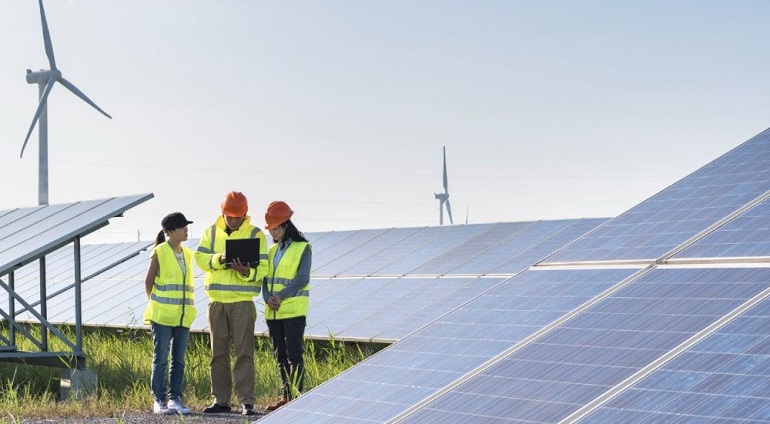Tender issuances for solar, wind, and hybrid projects soar past government targets
India’s push for clean energy has yielded record results, with a new report highlighting a surge in tenders issued for large-scale renewable energy projects.
A joint report by the Institute for Energy Economics and Financial Analysis (IEEFA) and JMK Research & Analytics reveals that tenders issued in fiscal year (FY) 2023 surpassed even the ambitious government target of 50 gigawatts (GW), reaching a staggering 69 GW.
“The market has rebounded strongly after a slump caused by supply chain issues and global price spikes,” says Vibhuti Garg, IEEFA’s South Asia Director and a report co-author.
The report attributes this growth to several factors, including:
- Strong investor interest: India’s vast renewable energy potential, supportive government policies, and attractive margins are luring investors.
- Tender innovation: India’s first large-scale offshore wind tender (4 GW) this year and a planned 500 MW concentrated solar + thermal storage tender next year exemplify this innovation.
- Rise of energy storage: Recognizing the need for a stable energy supply, tenders for energy storage systems (ESS) are witnessing exponential growth.
Jyoti Gulia, JMK Research Founder and another co-author, emphasizes the increasing focus on “a less intermittent and improved profile of renewable energy output.” This trend is reflected in the rising share of hybrid tenders combining wind and solar or renewables with ESS.
While solar and wind tenders still comprised a majority (57%) in FY2024, the diversification highlights a shift towards a more robust renewable energy mix. Interestingly, only a quarter of awarded tenders came from the central government agency, signifying the growing role of state-level authorities.
The report also found that location is less of a constraint, with roughly 80% of tenders allowing developers flexibility to set up projects anywhere in India with grid connectivity. Additionally, the past two years saw over 10 new developers entering the market, including major players like BluPine Energy and BrightNight.
However, challenges persist. The report highlights concerns regarding high import duties on solar modules and the requirement to use domestically manufactured components, which inflate costs and could potentially hinder the price competitiveness of renewable energy.
Despite these hurdles, the report’s co-author Prabhakar Sharma, a Senior Consultant at JMK Research, expresses optimism: “The tendering activity reaffirms India’s commitment to achieving its 500 GW renewable energy target by 2030.”
Market stakeholders are confident that annual tendering capacity will again exceed the 50 GW target in FY2025, with the conclusion of pending auctions from FY2024 further accelerating project allotment.


